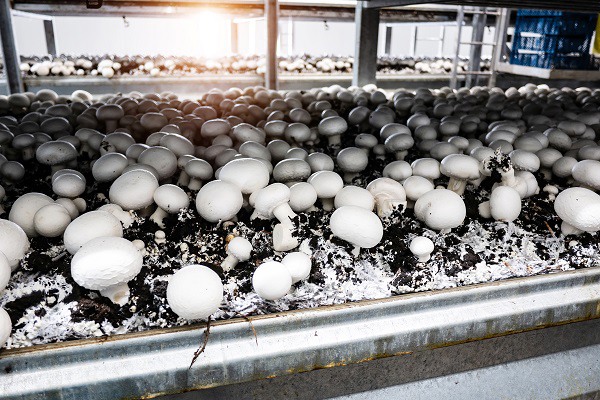The rumour that Denny Mushrooms, South Africa’s largest mushroom producer, is closing its doors, is not true. The mushroom grower, South Africa’s largest with farms in various provinces, is still supplying retail but it has reportedly decided not to rebuild its facility in KwaZulu-Natal which was set alight in September last year.
The damage and loss of production value has been estimated by Libstar Holdings, which acquired the mushroom grower in 2015, at R98 million (almost 4.5 million euros) for the year ending 31 December 2022.
Denny Mushrooms has declined to comment.
The torched KwaZulu-Natal facility used to supply around 10% of the country’s mushrooms, FreshPlaza was told by retail buyers. Denny Mushrooms has been supplying South Africa with mushrooms for over seventy years. Their facilities in Gauteng and the Western Cape are still operational, but they are (as are all mushroom growers in the country) heavily impacted by loadshedding.
“The unprecedented levels of loadshedding directly added R39 million [1.775 million euros] in direct operating costs, of which 70% related to three divisions, namely Lancewood [cheese production], Denny Mushrooms and Finlar Fine Foods [mostly meat products],” the listed company noted in their SENS announcement on 16 March 2023.
 White button mushrooms (Photo © Dzmitry Palubiatka | Dreamstime.com)
White button mushrooms (Photo © Dzmitry Palubiatka | Dreamstime.com)
Electricity cuts affect mushroom quality
Retailers confirm that there is a mushroom shortage in the country, most acute on white button mushrooms which are more finicky to grow than other types of mushrooms.
“There are hectic shortages at the moment but it was even worse over Christmas when we had next to nothing,” says a fresh produce manager at one of the large retailers.
“In general mushroom producers are struggling with loadshedding,” remarks the general manager of fresh produce procurement at another of South Africa’s large retailers. “Generators aren’t keeping the temperatures of growth rooms as constant, which is resulting in significant production issues and therefore lower yield.”
The quality of mushrooms has been affected by the chronic electricity cuts and the prices have risen by between 10% and 20% year-on-year, according to the Bureau for Agricultural Policy’s February food inflation brief.
